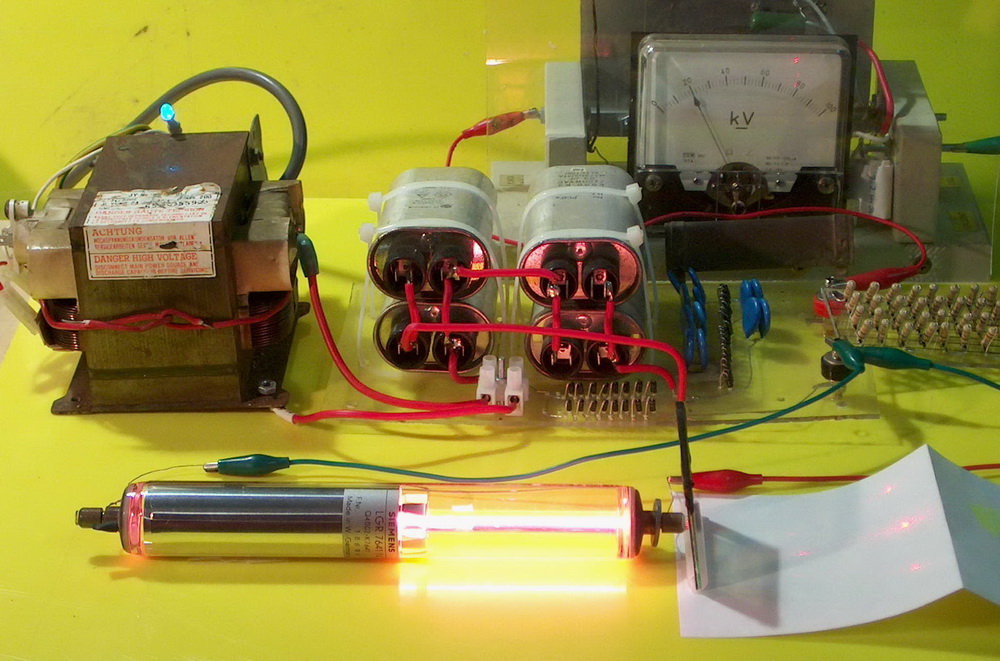 A working HeNe tube is shown below running at 2 kV with a 330 kohm resistor. It takes about 3 – 4 kV to trigger. It is shown firing through a 15,000 lines per inch diffraction grating and shows the first order spectra.
A working HeNe tube is shown below running at 2 kV with a 330 kohm resistor. It takes about 3 – 4 kV to trigger. It is shown firing through a 15,000 lines per inch diffraction grating and shows the first order spectra.
“Continue reading” for more details and 6 photos.
I have acquired a mixed bag of 5 laser tubes and one Neodymium:Yttrium-aluminium-garnet (Nd:YAG) laser rod and some associated stuff. I have made a laser power supply that supplies the 1700 V running voltage plus the 5 kV starting voltage. The plans are based on Sam’s Laser FAQ page which is a huge resource and the particular supply is the Edmund Scientific HeNe Laser Power Supply (ES-HL1) to which I have multiplied the number of IN4007 diodes by 2 or 3 and the capacitor ratings several times to allow me to push up to 10 kV if needed. My components (all to hand) were a microwave oven transformer (MOT), 4 microwave oven capacitors rated at around 1 uF 2000 VDC each and 2 rows of 8 diodes for the voltage doubler. The Cockroft-Walton 3 stage multiplier has 3 groups of 4 ceramic capacitors of .001 uF at 3 kV each and there are around 20 IN4007 diodes in the multiplier. I have a 47K 20W resistor in series with the output. Small HeNe lasers need about 70 k ohm total series resistance to limit current to say 6 mA and to counteract the negative resistance after the tube fires.
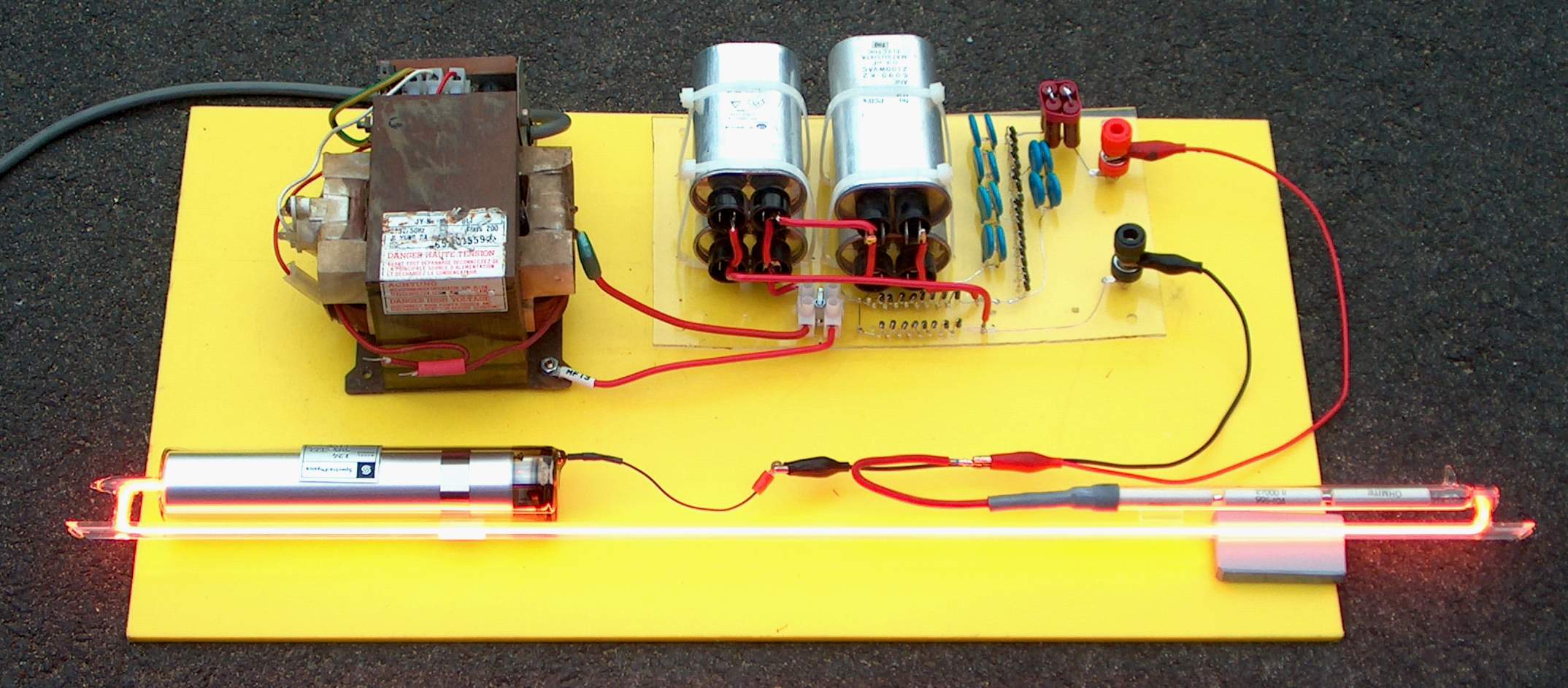
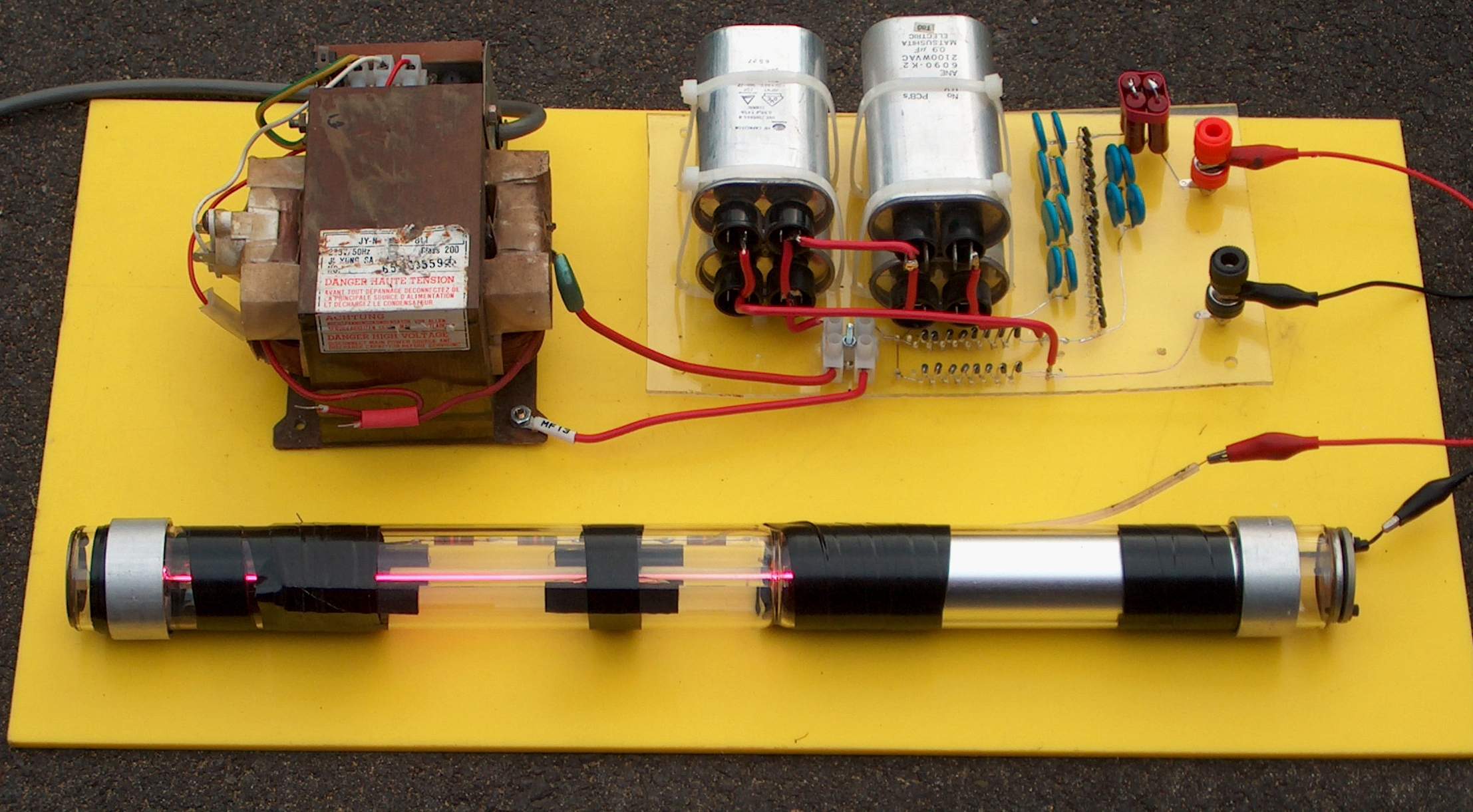 Above: The HV supply and one of the laser tubes (vintage 1974 and unopened!) are shown on the left. Note that the laser tube does not have end mirrors and lights up but does not ‘lase’ yet. It has internal 81 k ohm resistors. The laser tube on the right does not develop an external beam and may have a mirror alignment problem or have outgassed with age. It has attached magnets to alter the output spectra. Some beading of the beam suggests some air leakage.
Above: The HV supply and one of the laser tubes (vintage 1974 and unopened!) are shown on the left. Note that the laser tube does not have end mirrors and lights up but does not ‘lase’ yet. It has internal 81 k ohm resistors. The laser tube on the right does not develop an external beam and may have a mirror alignment problem or have outgassed with age. It has attached magnets to alter the output spectra. Some beading of the beam suggests some air leakage.
My next job is to get a stable mount and arrange external mirrors….
The old helium neon lasers non functioning tubes may be a useful source of mirrors.
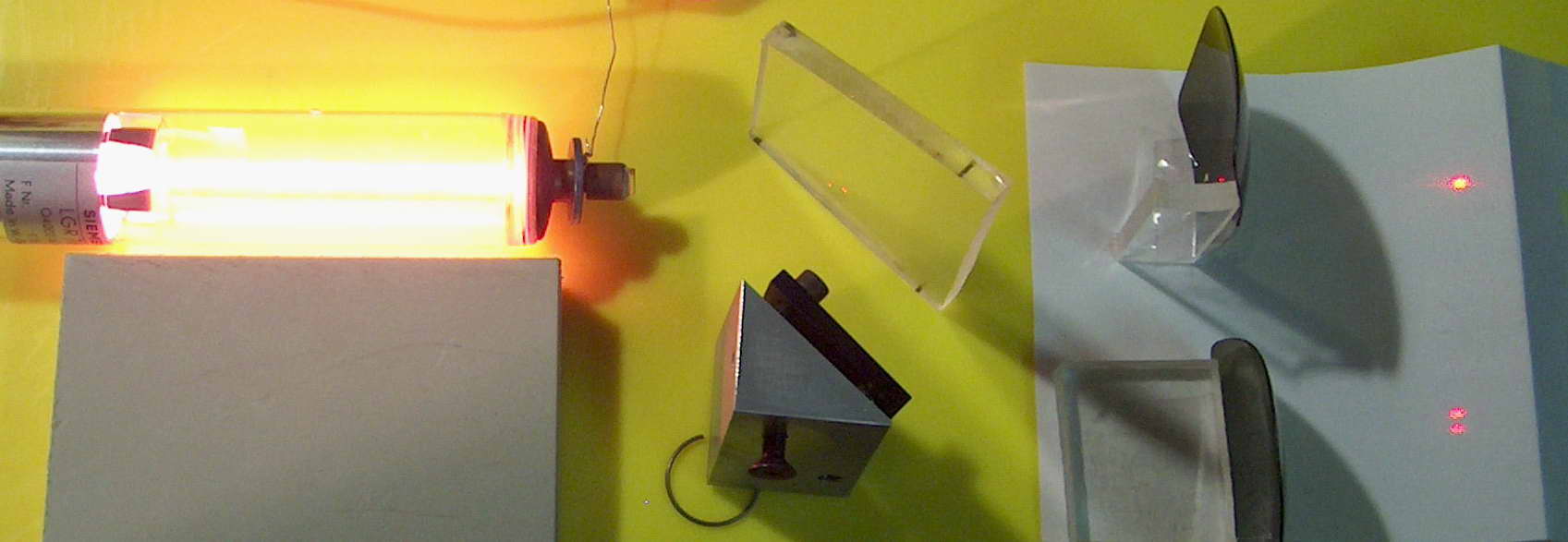
Above: An interesting experiment is to alter the polarization with a magnetic field. I have
used a bit of acrylic for a beam splitter and a mirror to have two beams side by side. These pass through polarizing filters (actually the lenses out of polaroid sunglasses) and these are set at right angles. With no magnetic field the polarity is mixed although actually it seems to waver around and change with time. Adding a magnet in different orientations shows the fixing and rotation of the polarization.
A pretty sloppy optical bench it may be but OK for the job.
Related pages
Try something else
External links
Photo Date: Aug 14, 2004


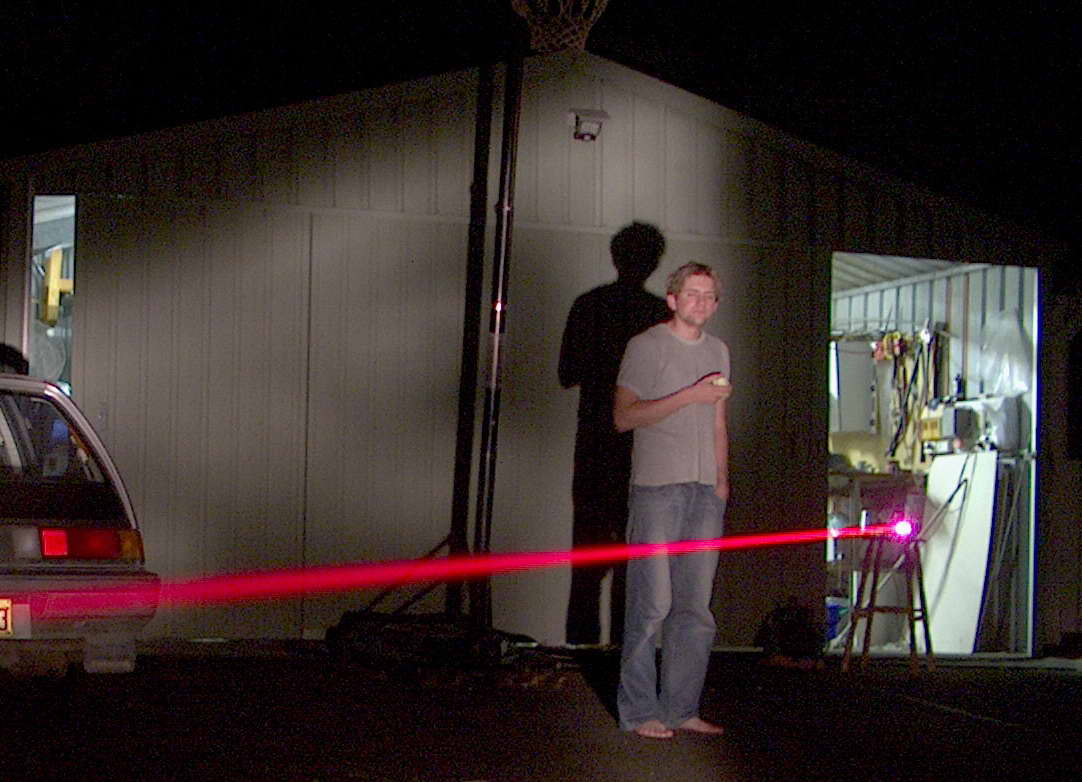 Helium Neon Laser 10mW
Helium Neon Laser 10mW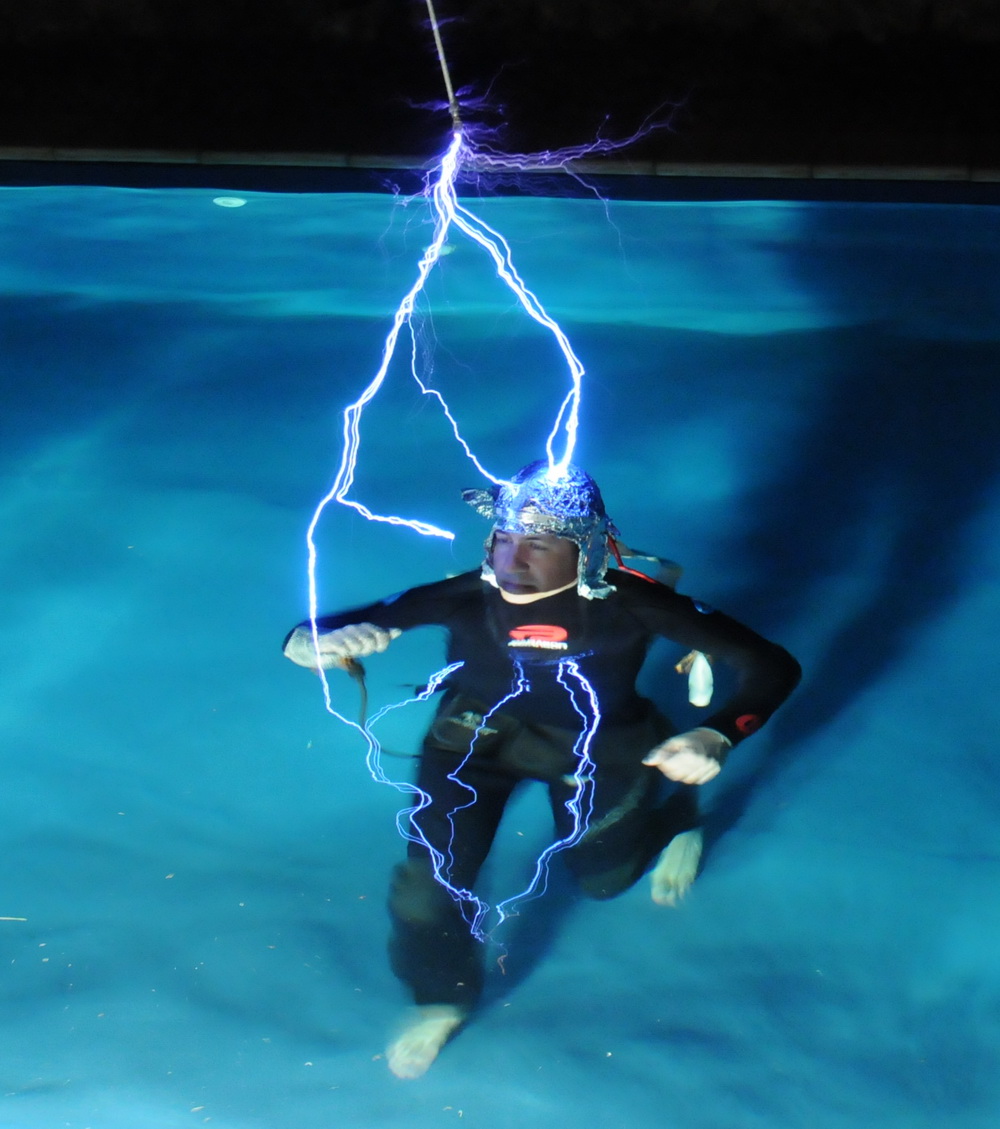 Sparks in the pool
Sparks in the pool